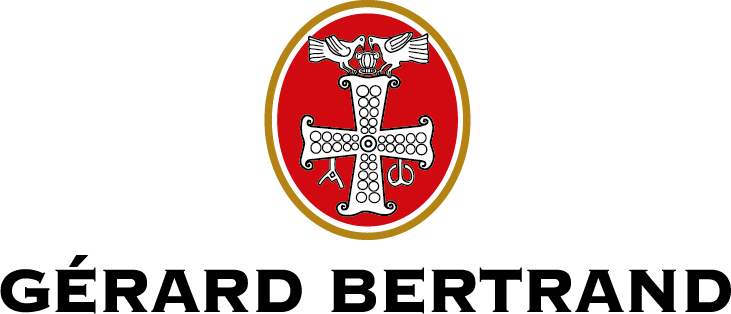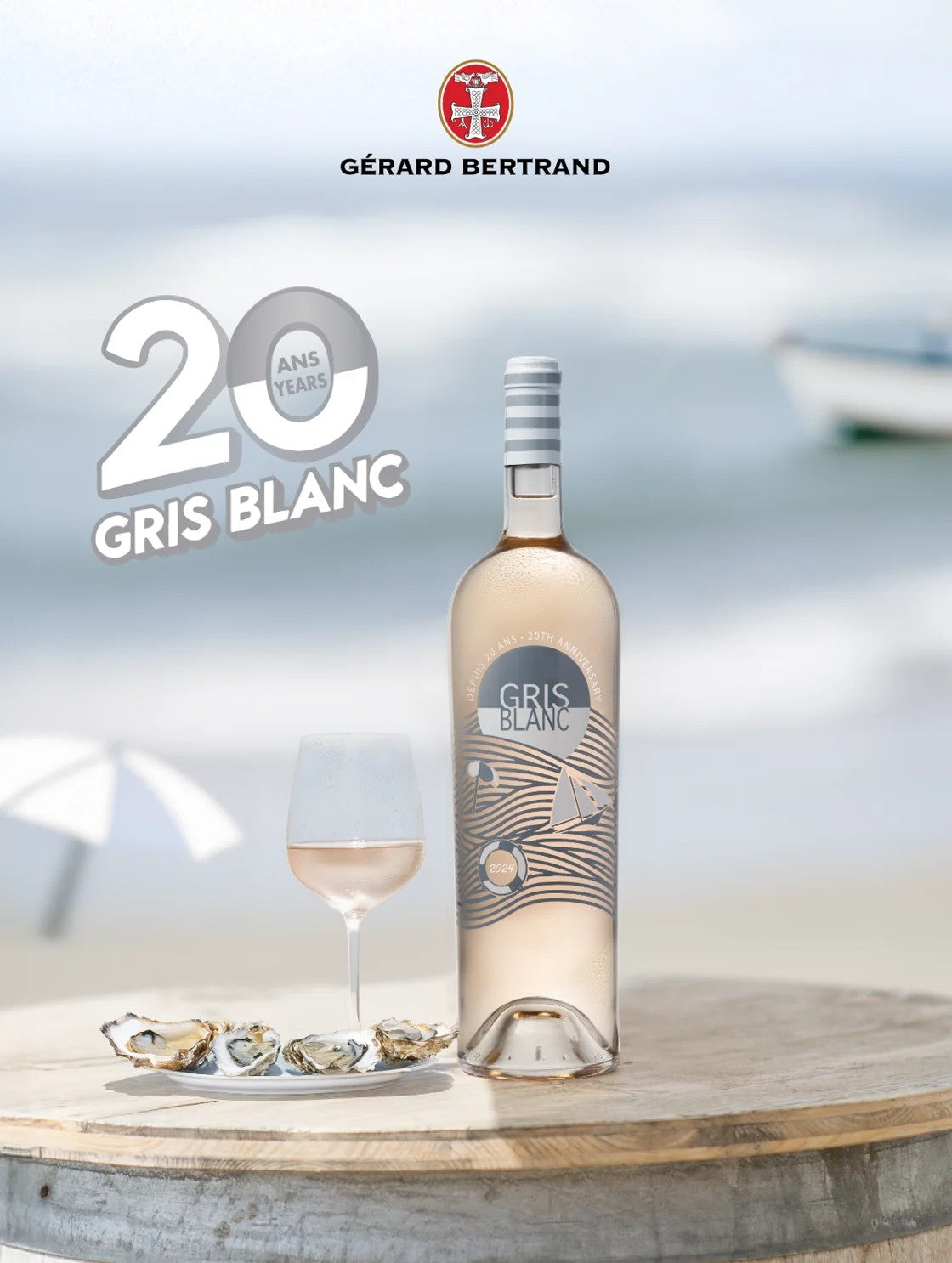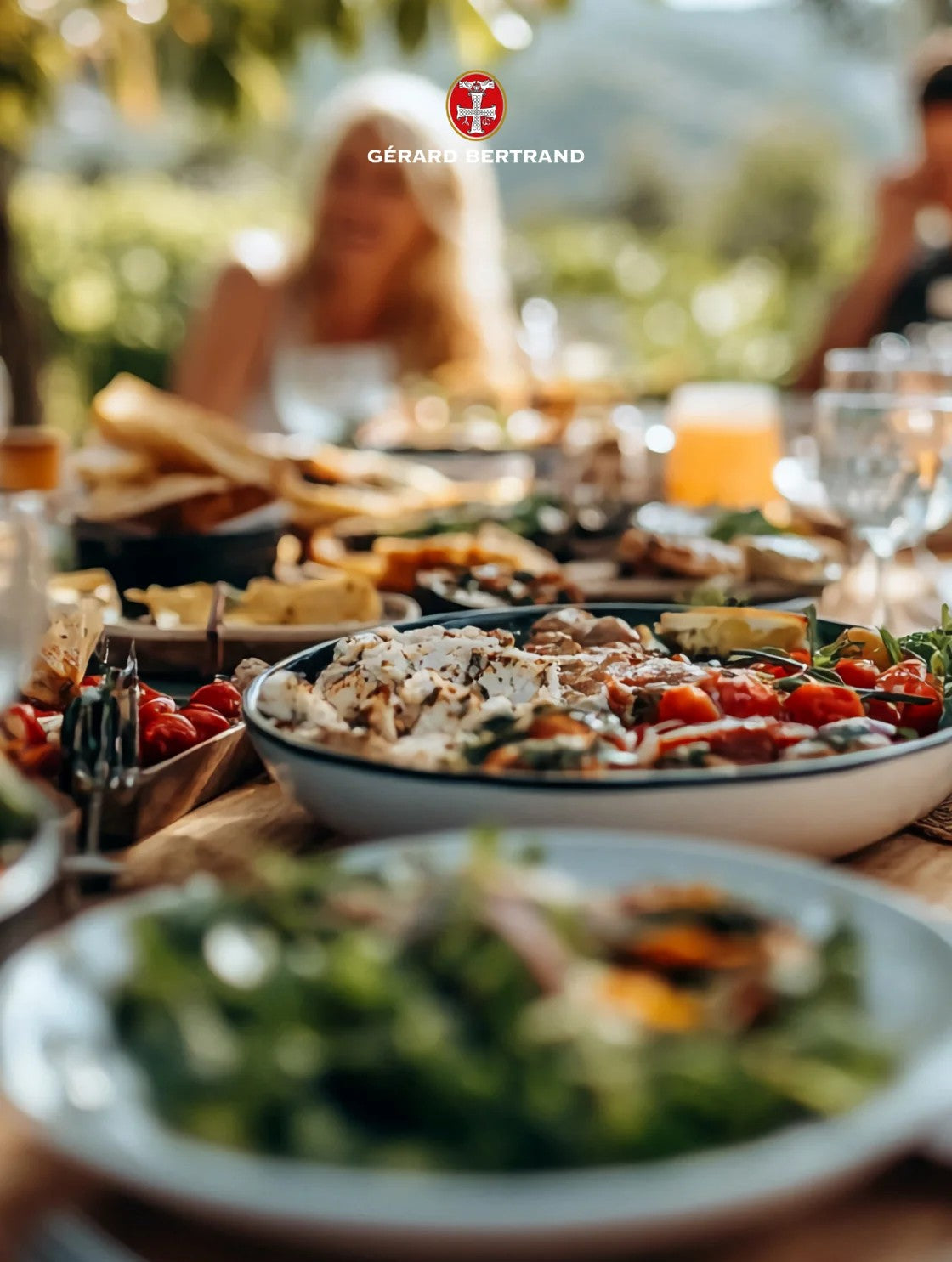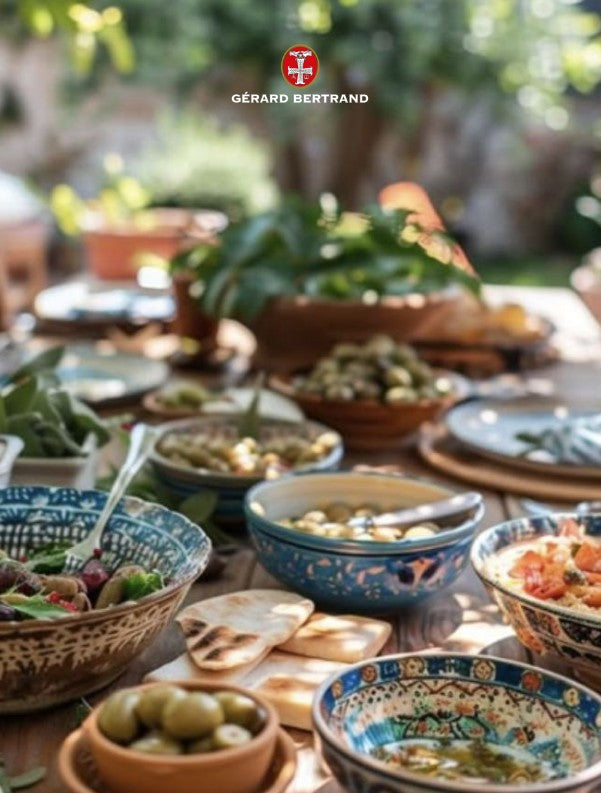The ideal wine in 4 questions
TAKE THE QUIZ


 Visit rosé wine is a tradition that dates back to antiquity, the origins of the making rosé wine come from Mediterranean vineyards.
Visit rosé wine is a tradition that dates back to antiquity, the origins of the making rosé wine come from Mediterranean vineyards.
It was here that the first winegrowers discovered how to macerate the skins of
red grapes to obtain that pinkish hue.

One of the particularities of rosé comes from the quantity and diversity of all its grape varieties. grape varieties. Grenache, Syrah, Mourvèdre, Cinsault and even Sangiovese, typical of southern Corsica, are the most recurrent and widespread in its production. Each has its own characteristics, bringing a different palette of flavors and aromas to the palate.
Le organic rosé wine is a classic in sunny wine-growing regions around the world. Whether in Provence, France, where good rosé wine dominates, in California's Nappa Valley and even on the outskirts of Adelaide, Australia, each terroir offers diversity to explore.
The idea that organic rosé wine is a blend of red and white wine is absolutely false. Production requires finesse and precision, with meticulous juice extraction to preserve the aromas of the grape varieties. Made from black grapes with white pulp, the rosé wine is the fruit of a shorter maceration than that used for red wine.
After harvesting, the grapes are taken to the winery, where the maceration process begins. This stage involves leaving the grape skins in contact with the must for a few hours, or even a few days, to produce the must.
The must is then pressed to separate the juice from the skins and pips. Once transferred to fermentation tanks (stainless steel or oak barrels), the alcoholic fermentation process begins. Yeast transforms the sugars present in the must into alcohol.
Some organic rosé wines can then be aged to develop further complexity and character. The wine can then be aged in oak barrels to develop vanilla aromas, for example, or in stainless steel tanks to preserve fruity aromas.
Before bottling organic rosé wine is generally clarified and filtered to remove impurities and particles.
In conclusion making rosé wine is a complex and meticulous process. From the selection of the grapes to the final bottling, everything is organized to produce the best rosé wine. Understanding this process allows us to fully appreciate and enjoy each tasting.
Find out more about rosé wine :
Discover the best wines
Gérard Bertrand :

20 years ago, in the heart of the South of France, between the Pyrenees and the Mediterranean, an idea matured under the Languedoc sun: to reveal a new face of rosé. A delicate, crystalline wine, with a ...
Read the article
Barbecuing has never been so trendy. Braziers, plancha grills, traditional barbecues... they're inviting themselves into the heart of our summers, sublimating simple products in a convivial atmosphere. A fire, a few...
Read the article
Tapas & wine: the Mediterranean art of living A dinner with friends, plates to share, the scent of olive oil and rosemary... and wines selected to accompany this Mediterranean cuisine...
Read the article